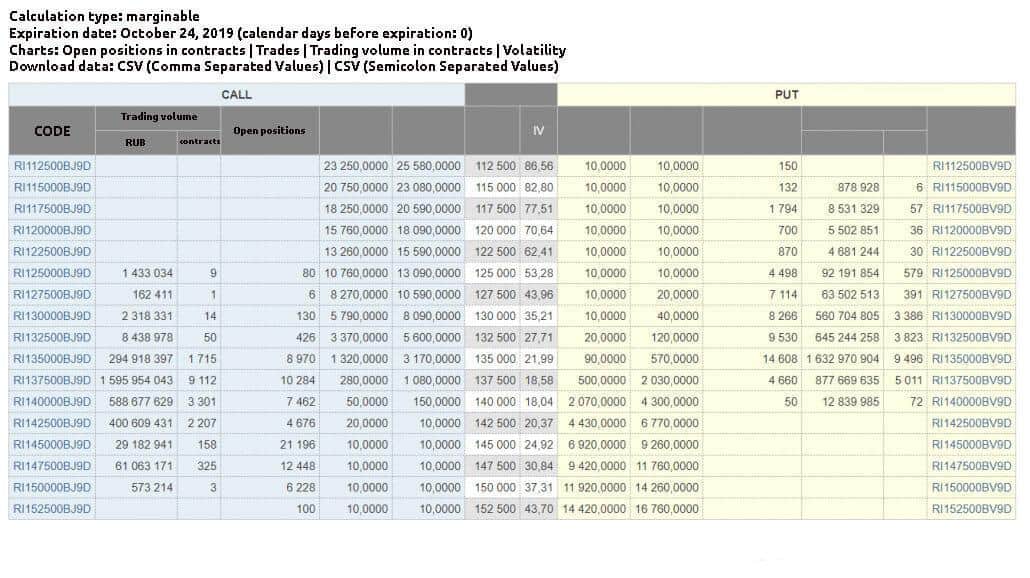
When you're looking for the best place to invest your money, it's important to learn how to research a company. Blue-chip stock are a great choice, because they can preserve capital and pay dividends. Stock research requires that you examine the financial statements. The balance sheet can tell you how much debt and cash the company has. You can assess whether a company makes a good investment by reviewing these documents.
Investing in a company’s long-term prospects
Investors are asking themselves how to invest in the long-term potential of a company. It all depends on the expectations of the investor. If the target is a year from now, then investing in a growth company is a wise decision. Investments in a company that is at its earliest stage will provide better returns if the target date is one year away. Also, a longer time frame will mean that the company's growth rate is slower but more likely to be higher.

Using financial statements
A daunting task for investors new to investing is using financial statements to research stocks. Financial statements are important tools that help investors determine whether a company has strong financial health. This information is used by investors to make trade decisions. They also examine company characteristics, such as its earnings history, cash flow, and so forth. These financial statements provide traders with an insight into a company's future potential.
Assessing the company's management
You should take into account several things when assessing the company's management. In the first place, make sure that the promoters do not play with investor money. You should also investigate regulatory issues. Finally, assess the company's remuneration. Different companies offer different rewards for key personnel. Find a company with a reduced shareholding of promoters.
Utilizing industry statistics
Analyzing past stock price data is a great way to begin investing if you are a novice investor. A stock price only shows the company's current performance. Historical data gives you a much more detailed picture of how the company performed in the past. This data can also give you information about the leadership of a company that can have an effect on its stock value.

Stock screening tools
It is possible to do quantitative analysis by using a stock screening tool. This tool allows you search stocks by a number of parameters including earnings growth rate, price-to-earnings ratios, and others. Screeners are more focused on performance and quantifiable variables than other methods. Therefore, they won't be useful for finding the best product.
FAQ
What are the pros of investing through a Mutual Fund?
-
Low cost - Buying shares directly from a company can be expensive. It's cheaper to purchase shares through a mutual trust.
-
Diversification - Most mutual funds include a range of securities. One security's value will decrease and others will go up.
-
Professional management - Professional managers ensure that the fund only invests in securities that are relevant to its objectives.
-
Liquidity- Mutual funds give you instant access to cash. You can withdraw your money whenever you want.
-
Tax efficiency - mutual funds are tax efficient. This means that you don't have capital gains or losses to worry about until you sell shares.
-
No transaction costs - no commissions are charged for buying and selling shares.
-
Mutual funds are easy-to-use - they're simple to invest in. You only need a bank account, and some money.
-
Flexibility - You can modify your holdings as many times as you wish without paying additional fees.
-
Access to information- You can find out all about the fund and what it is doing.
-
You can ask questions of the fund manager and receive investment advice.
-
Security - know what kind of security your holdings are.
-
You can take control of the fund's investment decisions.
-
Portfolio tracking: You can track your portfolio's performance over time.
-
Easy withdrawal: You can easily withdraw funds.
There are some disadvantages to investing in mutual funds
-
Limited choice - not every possible investment opportunity is available in a mutual fund.
-
High expense ratio – Brokerage fees, administrative charges and operating costs are just a few of the expenses you will pay for owning a portion of a mutual trust fund. These expenses can impact your return.
-
Lack of liquidity-Many mutual funds refuse to accept deposits. They can only be bought with cash. This restricts the amount you can invest.
-
Poor customer service. There is no one point that customers can contact to report problems with mutual funds. Instead, you need to contact the fund's brokers, salespeople, and administrators.
-
Ridiculous - If the fund is insolvent, you may lose everything.
What is a Bond?
A bond agreement is a contract between two parties that allows money to be transferred for goods or services. It is also known as a contract.
A bond is usually written on a piece of paper and signed by both sides. This document contains information such as date, amount owed and interest rate.
When there are risks involved, like a company going bankrupt or a person breaking a promise, the bond is used.
Many bonds are used in conjunction with mortgages and other types of loans. The borrower will have to repay the loan and pay any interest.
Bonds can also be used to raise funds for large projects such as building roads, bridges and hospitals.
When a bond matures, it becomes due. This means that the bond owner gets the principal amount plus any interest.
If a bond isn't paid back, the lender will lose its money.
How does inflation affect the stock market
Inflation affects the stock markets because investors must pay more each year to buy goods and services. As prices rise, stocks fall. Stocks fall as a result.
How Share Prices Are Set?
Investors set the share price because they want to earn a return on their investment. They want to make profits from the company. They buy shares at a fixed price. Investors make more profit if the share price rises. If the share price goes down, the investor will lose money.
The main aim of an investor is to make as much money as possible. This is why investors invest in businesses. It helps them to earn lots of money.
Why are marketable securities Important?
A company that invests in investments is primarily designed to make investors money. It does this through investing its assets in various financial instruments such bonds, stocks, and other securities. These securities have certain characteristics which make them attractive to investors. These securities may be considered safe as they are backed fully by the faith and credit of their issuer. They pay dividends, interest or both and offer growth potential and/or tax advantages.
A security's "marketability" is its most important attribute. This refers to how easily the security can be traded on the stock exchange. A broker charges a commission to purchase securities that are not marketable. Securities cannot be purchased and sold free of charge.
Marketable securities are government and corporate bonds, preferred stock, common stocks and convertible debentures.
These securities are preferred by investment companies as they offer higher returns than more risky securities such as equities (shares).
How are securities traded?
The stock market lets investors purchase shares of companies for cash. Investors can purchase shares of companies to raise capital. Investors then resell these shares to the company when they want to gain from the company's assets.
Supply and demand determine the price stocks trade on open markets. The price of stocks goes up if there are less buyers than sellers. Conversely, if there are more sellers than buyers, prices will fall.
There are two methods to trade stocks.
-
Directly from company
-
Through a broker
How do people lose money on the stock market?
The stock market isn't a place where you can make money by selling high and buying low. It's a place you lose money by buying and selling high.
The stock market is an arena for people who are willing to take on risks. They may buy stocks at lower prices than they actually are and sell them at higher levels.
They are hoping to benefit from the market's downs and ups. They might lose everything if they don’t pay attention.
Statistics
- Ratchet down that 10% if you don't yet have a healthy emergency fund and 10% to 15% of your income funneled into a retirement savings account. (nerdwallet.com)
- Our focus on Main Street investors reflects the fact that American households own $38 trillion worth of equities, more than 59 percent of the U.S. equity market either directly or indirectly through mutual funds, retirement accounts, and other investments. (sec.gov)
- Even if you find talent for trading stocks, allocating more than 10% of your portfolio to an individual stock can expose your savings to too much volatility. (nerdwallet.com)
- US resident who opens a new IBKR Pro individual or joint account receives a 0.25% rate reduction on margin loans. (nerdwallet.com)
External Links
How To
How to Invest Online in Stock Market
Investing in stocks is one way to make money in the stock market. There are many options for investing in stocks, such as mutual funds, exchange traded funds (ETFs), and hedge funds. Your risk tolerance, financial goals and knowledge of the markets will determine which investment strategy is best.
You must first understand the workings of the stock market to be successful. Understanding the market, its risks and potential rewards, is key. Once you understand your goals for your portfolio, you can look into which investment type would be best.
There are three main types: fixed income, equity, or alternatives. Equity is ownership shares in companies. Fixed income is debt instruments like bonds or treasury bills. Alternatives include commodities, currencies and real estate. Venture capital is also available. Each category has its pros and disadvantages, so it is up to you which one is best for you.
Two broad strategies are available once you've decided on the type of investment that you want. One is called "buy and hold." You buy some amount of the security, and you don't sell any of it until you retire or die. Diversification, on the other hand, involves diversifying your portfolio by buying securities of different classes. You could diversify by buying 10% each of Apple and Microsoft or General Motors. Multiplying your investments will give you more exposure to many sectors of the economy. You are able to shield yourself from losses in one sector by continuing to own an investment in another.
Risk management is another important factor in choosing an investment. Risk management allows you to control the level of volatility in your portfolio. You could choose a low risk fund if you're willing to take on only 1% of the risk. You could, however, choose a higher risk fund if you are willing to take on a 5% chance.
Learn how to manage money to be a successful investor. Planning for the future is key to managing your money. Your short-term, medium-term, and long-term goals should all be covered in a good plan. This plan should be adhered to! Don't get distracted by day-to-day fluctuations in the market. Your wealth will grow if you stick to your plan.